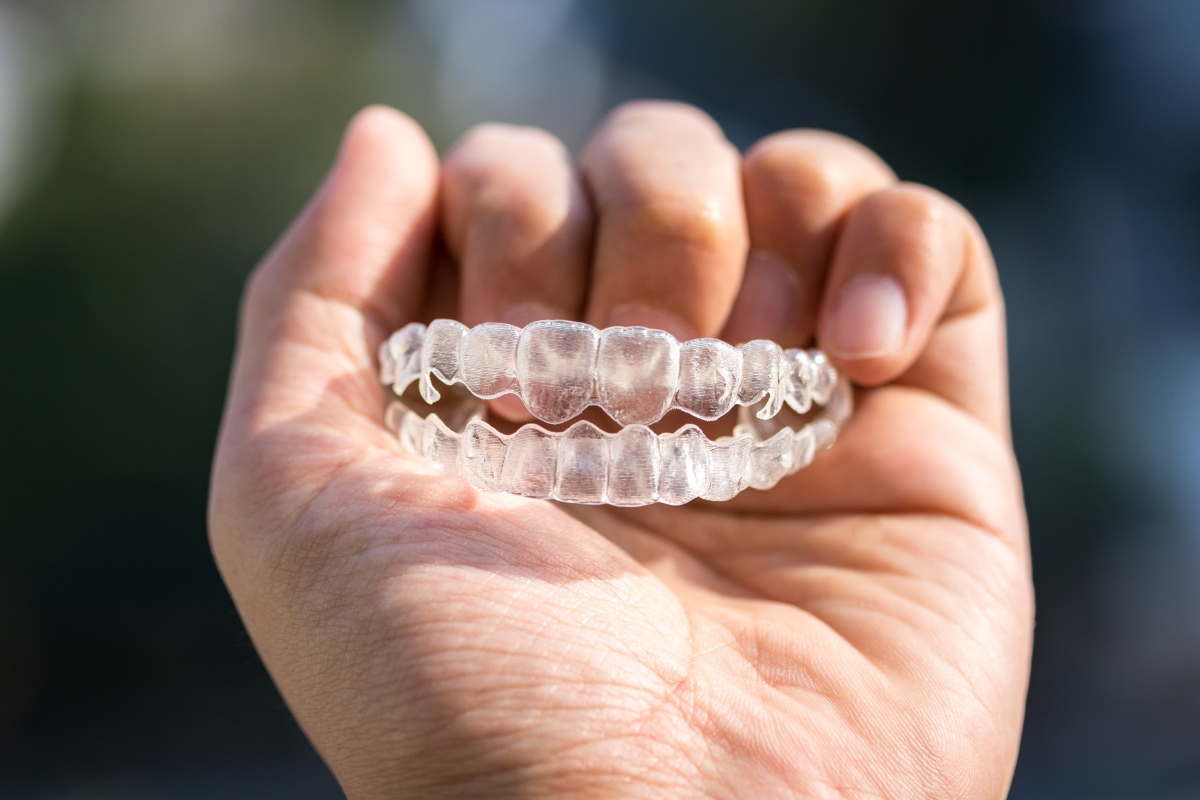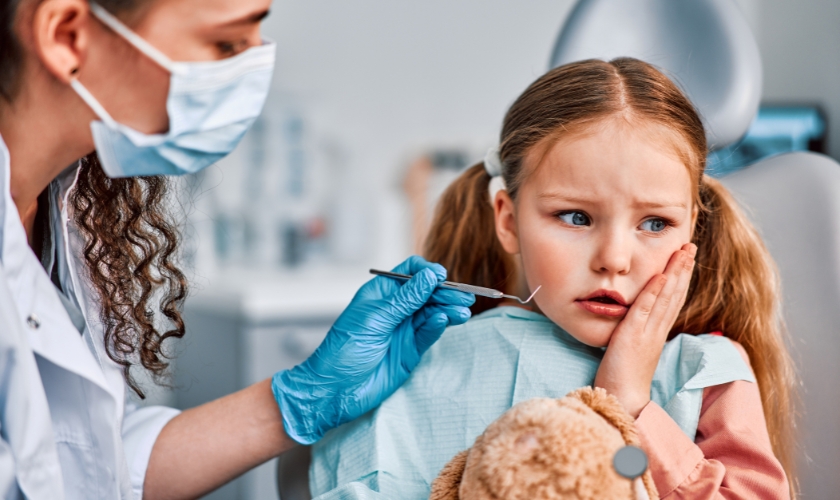

Being a parent comes with a never-ending list of worries, and children’s dental emergencies can be high on that list. From a chipped tooth during playtime to a throbbing toothache in the middle of the night, these situations can be scary for both child and parent.
The good news is that with a little knowledge and preparation, you can effectively handle most Children’s Dental Emergencies. This guide will equip you with the information you need to stay calm, assess the situation, and take the appropriate steps to get your child the care they need.
Here, we’ll cover the most common Children’s Dental Emergencies, provide first-aid tips, and highlight when to seek professional dental help. We’ll also explore preventive measures to minimize the risk of emergencies and resources to help you find a pediatric dentist.
Understanding Children’s Dental Emergencies
What Constitutes a Dental Emergency?
Children’s dental emergencies encompass a range of situations that require immediate attention to prevent further damage or alleviate pain. Some common examples include:
- Knocked-Out Tooth: Accidents or falls can result in a permanent tooth being knocked out, necessitating prompt action to increase the chances of successful re-implantation.
- Tooth Fractures: Whether due to sports injuries or biting down on hard objects, fractured teeth can expose sensitive nerves and require urgent dental care.
- Severe Toothache: Persistent or severe tooth pain can indicate underlying issues such as tooth decay, infection, or abscess, requiring immediate evaluation by a dentist.
- Lost Fillings or Crowns: Dislodged fillings or crowns can expose the underlying tooth structure, leading to discomfort and increased risk of further damage.
- Soft Tissue Injuries: Lacerations or tears to the lips, gums, or tongue can occur during accidents or while eating, necessitating proper wound care and potential stitches.
The Importance of Prompt Treatment
Prompt treatment is crucial in children’s dental emergencies to prevent complications and preserve dental health. Delaying care can lead to increased pain, infection, and even long-term damage to permanent teeth. As such, parents should be prepared to take immediate action when faced with a dental emergency involving their child.
Essential Steps for Parents
Stay Calm and Reassure Your Child
In any emergency situation, it’s essential for parents to remain calm and provide reassurance to their child. Panicking can escalate the child’s anxiety and make it more challenging to assess and address the issue effectively. Speak in a calm and comforting tone, assuring your child that you’re there to help and that everything will be okay.
Assess the Situation
Before taking any action, assess the severity of the dental emergency. Is the tooth completely knocked out or partially dislodged? Is your child experiencing significant pain or discomfort? Understanding the nature of the emergency will guide your next steps and help you communicate effectively with dental professionals.
Handle Knocked-Out Teeth With Care
If your child’s tooth has been knocked out, it’s essential to handle it with care to maximize the chances of successful re-implantation. Here’s what to do:
- Retrieve the Tooth: Pick up the tooth by the crown (the part visible in the mouth) and avoid touching the root to prevent damage to delicate tissues.
- Clean Gently: If the tooth is dirty, rinse it briefly with milk or saline solution. Avoid scrubbing or using soap, as this can harm the tooth’s delicate cells.
- Reposition if Possible: If feasible, try to reposition the tooth back into its socket, ensuring it faces the right way. Have your child gently bite down on a clean cloth or gauze to hold the tooth in place.
Control Bleeding and Manage Pain
In cases of bleeding or soft tissue injuries, use a clean cloth or gauze to apply gentle pressure to the affected area and control bleeding. For toothaches or discomfort, over-the-counter pain relievers suitable for children can provide temporary relief until professional dental care is available.
Contact Your Dentist or Seek Emergency Care
Once you’ve stabilized the situation to the best of your ability, contact your a trusted Pediatric dentist immediately for guidance and appointment scheduling. If the dental emergency occurs outside of regular office hours or is particularly severe, seek emergency dental care or visit the nearest hospital emergency room for prompt treatment.






